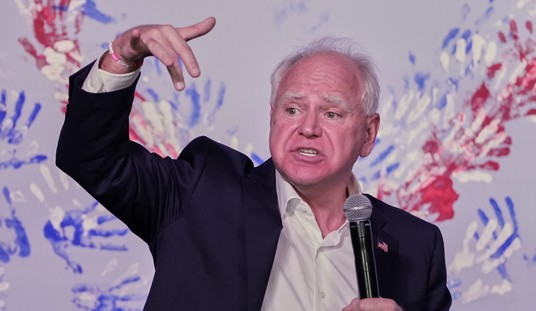One of the key takeaways from the 2016 presidential election was that a majority of American voters are fed up with business-as-usual in Washington, D.C., and were willing to vote for literally anyone not a part of it to force a change. For some, that was a proud socialist who had honeymooned in the U.S.S.R. For some, that was President Trump. For some, that was a pot-smoking former Southwest Governor. For some, it was a former CIA official and ex-congressional aide. For some, it was an environmentalist anti-vaxxer.
But obvious as it is that voters are fed up with typical inside-the-Beltway dealing, some politicians just keep missing the memo, choosing instead to wallow in the D.C swamp like overfed alligators, getting fatter and more hideous with every passing day. The latest example is New York Rep. Chris Collins, who has basically spent the whole of the last month getting pummeled for using his position as a congressman to advance laws and policies that literally and directly fatten his wallet.
 (D.C. in the summer.)
(D.C. in the summer.)
Collins’ first wave of bad press actually started back during now-HHS Secretary Tom Price’s nomination process, when it emerged that he was that biggest shareholder in a biopharma company and it was alleged that he had been pitching donors and colleagues on investing in that same firm. Clearly, the more congressmen invested, the more likely it was that Congress would vote in a manner beneficial to Collins’ personal balance sheet. And clearly, the more that happened, the more Collins’ donor pals who invested would get rich.
But this month, he’s found himself in hot water over the same investment, which the Washington Examiner’s Tim Carney notes is likely benefited by Collins’ positioning on two key pieces of legislation: The Collins-supported 21st Century Cures Act, and anticipated forthcoming legislation to curtail the 340B drug discount program which benefits a lot of Trump voters at no taxpayer expense. Over to Carney:
Collins is the No. 1 shareholder in Innate Immunotherapeutics, an Australian drugmaker. The Daily Beast reported that Collins has been close to the company since 2005 and joined the board in 2006.
Collins also played a major role in shaping the 21st Century Cures Act. According to various news reports, Collins inserted a provision into the late-2016 legislation that allowed a fast-track approval process for investigational drugs. This provision boosted Innate’s stock by helping bring Innate’s sole product, a Multiple Sclerosis drug called MIS416, to market more quickly.
Collins just happened to have bought up about a million dollars in Innate stock in August 2016, as the 21st Century Cures Act wended its way through Congress.
Read the rest of Carney’s article for more about why this, specifically, looks like some heavy self-dealing. The dumbed-down version is that the movement of this bill drove the company’s stock price up a lot, which benefited its investors, including Collins and his donors.
On the 340B program front, Carney writes this:
It’s with this brief history in mind that we need to consider Collins’ current efforts on the drug discount program called 340B. Medicaid covers prescription drugs, which provides a pipeline of taxpayer money for drug companies, and 340B in effect requires drugmakers to offer a discount on some drugs to certain hospitals and clinics that largely serve poor populations dependent on Medicaid.
Drug makers dislike the program because it eats into profits […] The lobbying fight over reforming, preserving, or killing 340B is fierce. And Collins has weighed into it.
How has Collins weighed into it? By blasting the program, which prevents the pharmaceutical sector, of which his company is a member, from making every conceivable dollar in profit even as it lines its coffers mightily with boatloads of your and my money via entitlement spending (and makes plenty off of non-entitlement drug purchases, thanks to the big price hikes we’ve seen in recent years). It’s worth remembering, of course, that Big Pharma has worked hard to expand entitlement spending on drugs via its support for Medicare Part D and Obamacare, which its industry trade group strongly supported, and that Big Pharma more or less agreed to 340B in order to get access to entitlement cash.
Collins is expected to introduce legislation to vastly curtail the 340B program soon. If that legislation makes it into law, it will be a massive boon for the company in which he is heavily invested.
But wait, Collins’ May got worse! Just a few days after Carney’s piece was published, Collins’ hometown newspaper reported that he is being investigated by the Office of Congressional Ethics:
Congressional ethics investigators are probing Rep. Chris Collins’ role in attracting investors to an Australian biotech company, interviewing several of them in the Buffalo area Tuesday and Wednesday, according to two sources familiar with the situation who asked not to be identified.
The Office of Congressional Ethics – an independent, nonpartisan entity charged with reviewing allegations of misconduct against members, officers and staff – is concentrating on investments in Innate Immunotherapeutics.
They are looking into any potential role played by Collins, the firm’s largest shareholder, in persuading investors to buy stock in the company.
Earlier this year reporters overheard Collins in a cellphone conversation just off the House floor, saying “how many millionaires I’ve made in Buffalo the past few months.”
Since then, the ethics office has received at least four complaints involving the Clarence Republican and his Innate investments. The complaints note that Collins was involved last year in legislation that could benefit Innate, raising questions about whether he violated a law that prohibits federal lawmakers in profiting from inside information when making investments.
And then, last week, the Daily Beast published this:
Rep. Chris Collins of New York holds the most investments, with $6.5 million in stock in two medical-device companies, ZeptoMetrix and Audubon Machinery Corp. Collins serves as a director at ZeptoMetrix and is one of the founders of Audubon Machinery. (The Office of Government Ethics is investigating Collins’ investments in an Australian pharmaceutical company.)
The Beast also notes this:
The AHCA would benefit these companies by eliminating billions of dollars in taxes and fees on pharmaceutical and medical-device manufacturers—a provision of the bill that doesn’t reflect a violation of ethics rules because it will have a broad effect across health-care industries, ethics experts said.
Since Republicans generally oppose all-but-minimal taxation on pure ideological grounds, it’s a little far-fetched to claim a big ethical issue with regard to Collins’ AHCA vote because the bill would cut taxes– on companies he’s invested in, or otherwise. But you can bet the point will be raised by whoever his opponent is next year.
In the meantime, don’t be surprised if Collins ends up taking votes or introducing other legislation that ups his personal net worth or otherwise pads his coffers. He has become a creature of Washington, D.C.














Join the conversation as a VIP Member